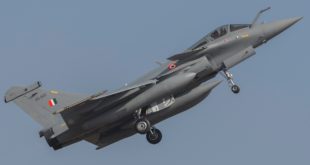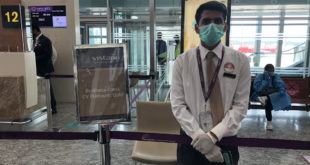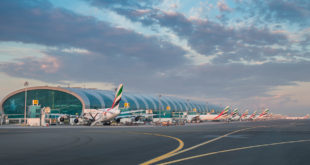The Q2FY21 results of India’s second-largest low-cost carrier point to the continued fragility of the airline’s financial health driven by large accumulated losses, questionable revenue recognition policy and uncertainty surrounding the resumption of international airline operations currently suspended on account of the pandemic.
SpiceJet Q2FY21 results snapshot (in INR) comparisons to Q2FY20
● Revenues ₹1,305 crores (down by 54%)
● Costs ₹1,418 crores (down by 60%)
● EBITDAR ₹475 crores (up by 208%)
● Loss after tax (EAT) ₹113 crores (improved by 76%)
● Revenue per available seat kilometre (RASK) ₹4.81 (up by 21%)
● Cost per available seat kilometre (CASK) ₹5.37 (up by 18%)
● Capacity 2.2 billion ASKM (down by 71%)
● Passenger load factor 73% (down by 15.7 bps)
Continuing capacity caps on airline operations have led to a sharp revenue decline
On account of the government-mandated capacity cap on airline operations post the nationwide lockdown imposed in the country in the face of the COVID-19 pandemic, the airline’s capacity was down by more than 70% during the quarter. While domestic airline operations were allowed to resume in a calibrated manner, international operations continue to remain suspended. As a result, the revenues of the airline declined by 54% while its expenses declined by 60%, leading to an improvement in its EBITDAR over the same quarter in the previous year.
Recognition of expected compensation from Boeing as other income continues to overstate profitability
SpiceJet has 13 Boeing 737 MAX aircraft in its fleet and a further 192 aircraft on order. In March 2019 the aircraft type was grounded worldwide on account of technical reasons. Operators of the MAX aircraft worldwide have been negotiating with Boeing for compensation towards costs incurred while the aircraft remains grounded.
However SpiceJet has been recognising aircraft and supplemental lease rentals and certain other identified expenses relating to the Boeing 737 MAX aircraft as other income throughout the financial year and the total amount recognised, which stood at ₹672 crore as on 31MAR2020, has further increased ₹811 crore 30SEP2020 with an incremental recognition of ₹139 crore during this quarter.
This has attracted a qualified opinion from the auditors, who have noted that, “In our view, there is no virtual certainty to recognise such other income and related receivable, as required by paragraph 33 of Ind-AS 37, “Provisions, Contingent Liabilities and Contingent Assets”.
Had the airline not recognised the expected compensation as other income, it would have reported a significantly higher loss of ₹252 crore. While the airline’s management has continued to sound optimistic about receiving these compensations, in the absence of any such assurance from Boeing to any airline, both the certainty of receiving compensation and the amount of money that will be received by SpiceJet remains in question.
SpiceJet has very little cash left and continues to delay payments to vendors and statutory authorities
The cash balance of the airline, which stood at ₹42 crore on 31MAR2020 has further deteriorated to ₹31 crore. This is a small fraction of the cash balance of its competitor airline, IndiGo. The cash available with the airline is not sufficient to pay even three days’ aircraft lease rentals. The airline’s trade payables as on 30SEP2020 has gone up by 22% over the previous year, despite the vastly reduced scale of operations. Evidently, the airline has been deferring payments to various parties, including vendors and its dues to statutory authorities.
SpiceJet would require external funding to be competitive over the medium term
The airline had a negative net worth of ₹1460 crore as on 30SEP2014, just before it faced the risk of grounding in December 2014. After significantly improving its financial position over the subsequent years, the airline’s financial position took a turn for the worse in the previous financial year largely driven by hardening oil price and a walking rupee.
This has further deteriorated in this quarter and the net worth of the airline stood at negative ₹2285 crore as on 30SEP2020. Currently, the aviation sector in Indian is strongly regulated by the government with capacity caps as well as price floors and caps. While this has limited the flexibility of airlines to price the tickets, this has also halted the practice of deep discounting of tickets and has therefore prevented cut-throat competition among airlines.
When normal services resume and the price controls are removed, SpiceJet would not be in a position to compete with other airlines that are backed by strong balance sheets or strong parent companies unless it is able to secure substantial funding from external sources.
 Bangalore Aviation News, Reviews, Analysis and opinions of Indian Aviation
Bangalore Aviation News, Reviews, Analysis and opinions of Indian Aviation



